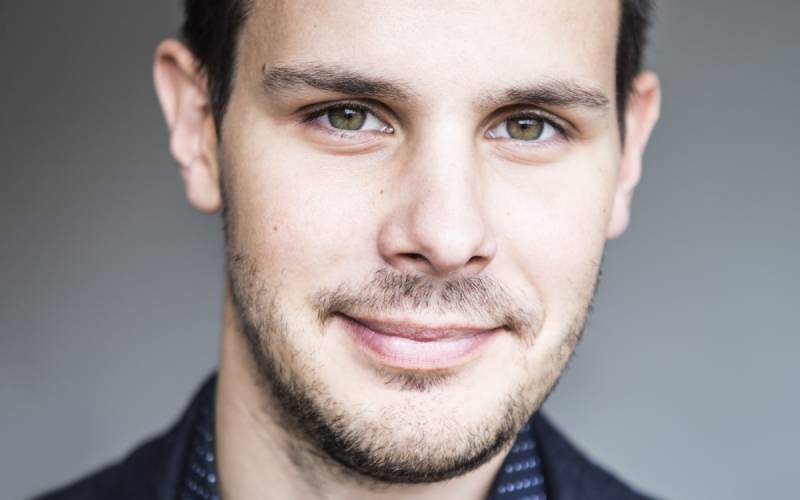“From such accounts [of Polish atrocities] we can see how incredibly emotional and how incredibly pleasurable it could be on the social level, not only for the people involved, but for the whole group, and we can really see how violence on others becomes the core of social identity, of the national identity. We tend to think about committing violence as anti-social, and that Eros is the only force that brings us together. We can’t see here how eroticized violence or sexualized violence might do it as well. After so many years of research, we don’t really have to ask the question: how is it that people can do such things, or how can people become murderers on a social level, on a group level? I’d say that the more interesting question we may ask is how did the murderers stay people and stay citizens? How could after committing such crimes in plain sight of the whole group, how could that group remain a stable group? How could a community of murderers and bystanders to the violence – what is the social glue that brings them all together? I would say that eroticized violence is one of the main aspects, one of the main elements of creating a closed identity based on denial of humanity of the other.”

Jan Borowicz, PhD
Warsaw
Episode Description:
We begin with acknowledging the phenomena of bystanding in the presence of extreme violence. The slaughter of neighbors by neighbors notoriously occurred in the Rwandan genocide and in the Polish Holocaust, which is the focus of Jan’s research. He posits that the psychoanalytic concept of perversion best captures the denial and split-off excitement that characterizes bystanding – ‘one eye open, one eye closed’. He challenges the possibility of observer’s indifference, documents the ever-present knowledge that neighbors have of the history of their neighbors, and discusses the experience of ‘ghosts’ inhabiting the homes of forgotten/remembered neighbors. We distinguish between being a bystander and a witness, and the state of mind “We will not forgive you for what we did to you.” We close with our sharing the difficulty of listening to this material and how he managed this over the years of his research.
Our Guest:
Jan Borowicz, PhD, is a certified psychotherapist and candidate in psychoanalytic training in Polish Psychoanalytic Society (IPA). He is a Member of Holocaust Remembrance Research Group in the Institute of Polish Culture, University of Warsaw, Poland. He is interested in cultural memory, psychoanalytic theory, and Holocaust studies. He published two books in Polish on history and memory of the Holocaust. Recently, he published his first book in English, Perverse Memory and the Holocaust: A Psychoanalytic Understanding of Polish Bystanders (2024), in which he explores the deep implications of witnessing mass violence and extermination.
Recommended Readings:
Jessica Benjamin, “A relational psychoanalysis perspective on the necessity of acknowledging failure in order to restore the facilitating and containing features of the intersubjective relationship (the shared third)”, International Journal of Psychoanalysis, vol. 9, iss. 3, 2009.
Jan Borowicz, Perverse Memory and the Holocaust: A Psychoanalytic Understanding of Polish Bystanders, trans. Mikołaj Golubiewski, Routledge: London and New York, 2024.
Stanley Cohen, States of Denial: Knowing about Atrocities and Suffering, Cambridge: Polity Press, 2001.
Samuel Gerson, “When the Third is Dead: Memory, Mourning, and Witnessing in the Aftermath of the Holocaust”, International Journal of Psychoanalysis, vol. 9, iss. 6, 2009.
Grzegorz Niziołek, Polish Theatre of the Holocaust, trans. Ursula Phillips, London: Bloomsbury Publishing and Instytut Teatralny im. Zbigniewa Raszewskiego, 2021.
Probing the Limits of Categorization: The Bystander in Holocaust History, eds. Christina Morina, Krijn Thijs, New York: Berghan Books, 2019.
Joel Whitebook, Perversion and Utopia: Studies in Psychoanalysis and Critical Theory, Cambridge, Massachusetts: MIT Press, 1996.

Thank you very much for your comment, I appreciate it! Laplanche’s theory can certainly deepen the understanding of the life and death drives.
Best wishes,
Jan Borowicz
Good that there is a realization of the specificIty of human ability in doing the worse and the better because in the worse and in the better does exist a connection with jouissance : that’ s why the Laplanchian proposition of the existence of Sexual Drives of Death and Sexual Drives of life ( instead of Eros and Thanatos ) makes sense and I suggest strongly to the auteurs to get acquainted with this important thinker.
Thank you so much for your comment, I appreciate it! Laplanche’s theory can certainly deepen our understanding of life/death drives.
Best wishes,
Jan